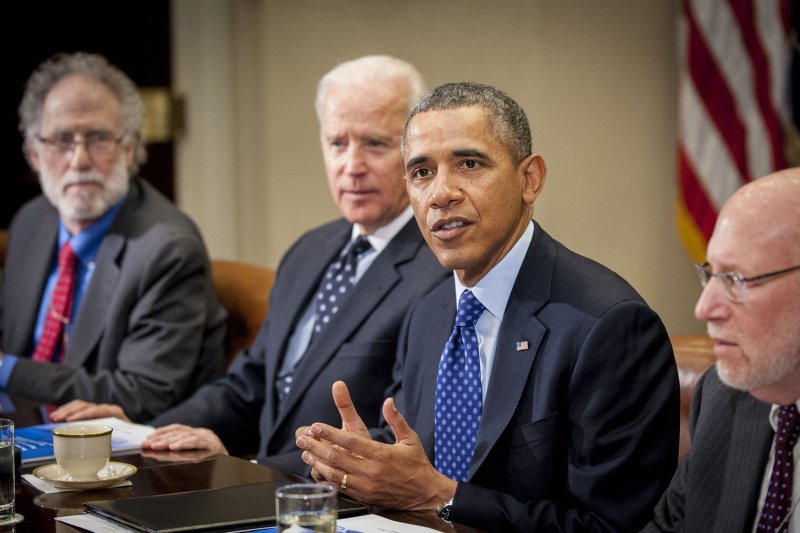President Barack Obama and Vice President Joe Biden meet with members of the Presidential Commission on Election Administration in the Oval Office in Washington, D.C., January 22, 2014, The Commission was created following the President's 2013 State of the Union pledge to identify non-partisan ways to shorten lines at polling places and provide better access to the polls for all voters. (File/UPI/Pete Marovich/Pool) |
License Photo
EAST LANSING, Mich., Feb. 11 (UPI) -- The reelection of Barack Obama offered strong evidence that Americans are perfectly willing to cast their vote for minority candidates. But now social scientists have further proof of relative tolerance at the ballot box.
Even as the prominence of minority politicians grows on the national stage, complaints that local politics remain overly homogeneous persist. But new research suggests a lack of diversity in state legislatures is not the fault of voters, but of political parties.
According to Eric Gonzalez Juenke, a researcher at Michigan State University who analyzed 10,000 elections held between 2000 and 2010, Latino candidates were put on the ballot just five percent of the time but were just as likely to win as their white counterparts -- even in districts where white voters were the majority.
"Thus, the puzzle of minority underrepresentation in the United States shifts away from voters and moves instead toward the parties who are responsible for recruiting, training and supporting minority candidates for office," said Juenke, assistant professor of political science.
"We don't have to pack districts with minority voters in order to get minority representatives in legislatures," Juenke added. "What we need to do is start running more minority candidates."
Juenke's study, which was published in the American Journal of Political Science, doesn't contend that biases against politicians of different races and ethnicities don't exist. A wealth of previous research has proven such prejudices remain alive and well.
The study only suggests that white voters are more likely to prioritize party affiliation over the color of a candidate's skin, and that more of the blame for white-heavy state legislatures needs to fall on political parties for not recruiting a more diverse array of candidates.
[Michigan State University]







